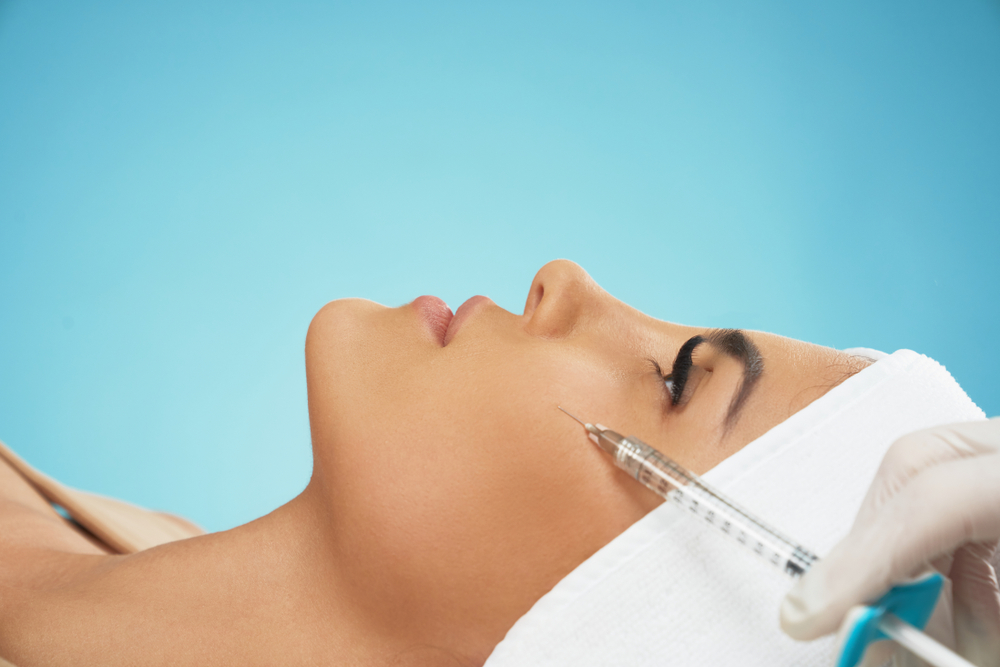The UK Government has confirmed that it will introduce a licensing scheme to regulate aesthetic and non-surgical cosmetic procedures, in a move that aims to improve public safety and raise professional standards across the industry.
The announcement follows a public consultation process and years of campaigning from industry bodies, including the British Beauty Council and The Joint Council for Cosmetic Practitioners (JCCP).
The new measures, announced by the Department of Health and Social Care (DHSC), will mean that only qualified healthcare professionals can perform the highest-risk procedures, such as non-surgical Brazilian Butt Lifts (BBLs).
Businesses offering anti-wrinkle injections and fillers will also be required to meet strict licensing conditions set by local authorities, and under-18s will be banned from accessing certain treatments unless authorised by a healthcare professional.
“This Government is taking action to protect those seeking treatments, support honest and competent practitioners, and root out the cowboys as part of our Plan for Change,” said Minister of State for Health Karin Smyth.
“This isn’t about stopping anyone from getting treatments – it’s about preventing rogue operators from exploiting people at the expense of their safety and keeping people safe,” Smyth added.
What the new government measures will ensure
The Government has outlined a tiered approach to regulation based on the level of risk associated with procedures. Key elements of the new framework include:
- Only registered clinicians will be able to perform the riskiest procedures such as Brazilian Butt Lifts.
- These high-risk procedures must be undertaken by organisations that are registered with the Care Quality Commission (CQC).
- Procedures involving botulinum toxin or fillers will now become properly licenced through a new local authority licensing scheme.
- It will be illegal to administer regulated and licensed procedures to young people under the age of 18 unless it has been authorised by a clinician.
- Practitioners will need to meet strict standards on education, training, infection control, patient safety, and insurance before they can operate legally.
The regulations are part of a wider effort to reduce the burden on the NHS caused by botched cosmetic procedures.
Timeline and next steps
The highest-risk procedures are the first priority for regulation. A public consultation on the wider scope of treatments, including those considered medium- and low-risk, is expected early next year.
While there will be no immediate changes to the way practitioners operate, the announcement signals the start of a significant shift in how the aesthetic sector is governed.
The DHSC confirmed that these new measures are just the beginning. More work will be done over a longer period to define training standards, qualifications and infection control measures for other types of treatments.
Sector support
The Government announcement has prompted an outpouring of sector support.
JCCP Chair and Registrar David Sines said:
“For years, we at the JCCP have called for a robust regulatory system that holds practitioners to account, ensures rigorous training, and prevents unsafe practice.”
“This Government response reflects that vision and reinforces the importance of patient-centred care, ethics, and safety.”
“It will protect the public from untrained and inexperienced operators and it will save the NHS a considerable amount of time and money putting right the harm done through botched procedures.”
“Ensuring that all cosmetic practitioners are regulated and licensed to a new national education and training standard, that they are appropriately insured and that they work from safe premises will be warmly welcomed. This new commitment has our full support and we welcome the opportunity to engage in further consultation.
“The non-surgical cosmetics field is changing rapidly with new procedures becoming available all the time. These new government measures will only come into force after a further consultation, early next year, on which procedures should be covered. There has already been a major consultation on this issue in 2023 and there should be no further delay to the task of improving patient safety and saving money for the NHS. We would therefore urge the government to move rapidly on this issue and introduce the necessary arrangements as quickly as possible.”
Minister of State for Health, Karin Smyth said:
"The cosmetics industry has been plagued by a Wild West of dodgy practitioners and procedures. There are countless horror stories of cosmetic cowboys causing serious, catastrophic damage. This government is taking action to protect those seeking treatments, support honest and competent practitioners, and root out the cowboys as part of our Plan for Change.
"This isn't about stopping anyone from getting treatments - it's about preventing rogue operators from exploiting people at the expense of their safety and keeping people safe. We're giving them peace of mind and reducing the cost to the NHS of fixing botched procedures."
Dr Mike Tee, medical doctor at the Harley Street Clinic said:
“This is a welcome step towards ensuring the safety of patients across the UK. I've witnessed the outcomes first-hand where patients have undergone procedures and treatments carried out by unqualified and unregulated individuals, often with devastating effects. It’s not just the physical trauma, botched treatments can cause serious psychological harm, which could easily have been avoided with proper clinical oversight."
“By restricting invasive procedures like Brazilian Butt Lifts to licensed, medically trained professionals operating under the Care Quality Commission, we can significantly reduce harm and restore confidence in cosmetic treatments."
“We must ensure that when someone opts to have a cosmetic treatment, minor or major, the person they are placing their trust in is medically trained, the environment in which the treatment is carried out is clean and safe, and that the necessary regulatory affiliation or registration is in place."
Natasha Ricioppo, healthcare regulatory senior associate at Keystone Law shares:
“The government’s move towards enhanced regulation is a critical step in bringing greater consistency and oversight to the sector. A well-structured framework will clarify who is permitted to perform these procedures, the required qualifications, insurance, regulatory registrations, and standards expected in clinical environments."
"Clear guidance on what is permitted is particularly important, as administering treatments in unsuitable, non-clinical environments could invalidate any insurance the practitioner may hold, making it more difficult for an injured patient to recover compensation."
“Whilst many professionals perform these procedures responsibly and in full compliance with existing obligations, a minority of practitioners are unscrupulously exploiting the regulatory gap, creating confusion for the public and undermining confidence in the wider sector. These are not routine beauty services, they are clinical interventions that carry real risk. Enhanced regulation will not only protect consumers but also support practitioners by setting clear and consistent expectations regarding their legal and professional responsibilities."
Dr Manav Bawa, cosmetic doctor at Time Clinic, ambassador for Save Face and AMI Faculty for Allergan Aesthetics said:
"This marks a significant turning point for the medical aesthetics sector and for public safety."
"That said, this cannot be where it stops. The future of beauty treatments must be underpinned by a robust, enforceable licensing framework - not only for the highest-risk procedures like BBLs, but for everyday injectable treatments such as wrinkle-relaxing injections and dermal fillers."
"These are not beauty treatments - they are medical procedures that carry real risks. If implemented swiftly and properly enforced, these regulations will help eliminate rogue operators, raise standards, and allow ethical, qualified medical practitioners to safely serve patients with transparency and accountability."
"While this announcement is a positive first step, we need to be clear: enforcement is everything. We’ve had well-intentioned proposals in the past, but without real consequences for those breaking the rules, public safety won’t improve.We need robust licensing and regulation for all injectable cosmetic treatments."
"Moving forward, public awareness will also play a key role. Patients must know how to verify a practitioner’s credentials and understand that cheaper, unregulated treatments often come at a much higher cost to their health, safety, and wellbeing. True change will come when regulation is implemented quickly, policed effectively, and backed by legal consequences for non-compliance."
Lesley Blair MBE, CEO and Chair of The British Association of Beauty Therapy and Cosmetology & CIBTAC shares:
"We believe that this decision will not only help to bring the clarity, protection and regulation that we have been campaigning for, for many years, but will reassure consumers navigating our industry. In recent years, the lack of regulation has meant that consumers have been exposed to unnecessary risk and danger, and we hope that what follows in legislation will help to mitigate those risks.”
“The beauty industry continues to show great innovation and consumers are more savvy now than ever before, so bringing in much-needed regulation is absolutely the pivotal next step to ensuring that treatments are able to be enjoyed safely, in the right hands and environment.”
Caroline Hirons, industry expert, BABTAC board member and founder of Skin Rocks and Beauty Backed Trust said:
“It’s encouraging to see government moving a step closer towards their pro-posed licensing scheme with their ruling on tighter regulation on Brazilian Butt Lifts. I also whole-heartedly agree with the recommendations that injectables such as Botulinum Toxins and Dermal fillers should be administered in a clinical environment with stricter licensing and legal ac-countability."
"That said I am a passionate advocate for our highly qualified and incredibly skilled beauty professionals. We deserve a level playing field for those advanced treatments that a suitably qualified and professional beauty therapist is equally as skilled to perform. I therefore welcome their proposal to have further consultations and collaboration with relevant industry ex-perts on those procedures. Getting the balance right is critical, but appropriate regulation can achieve that.”
You might also like: UKHSA issues warning over botulism caused by fake toxin



